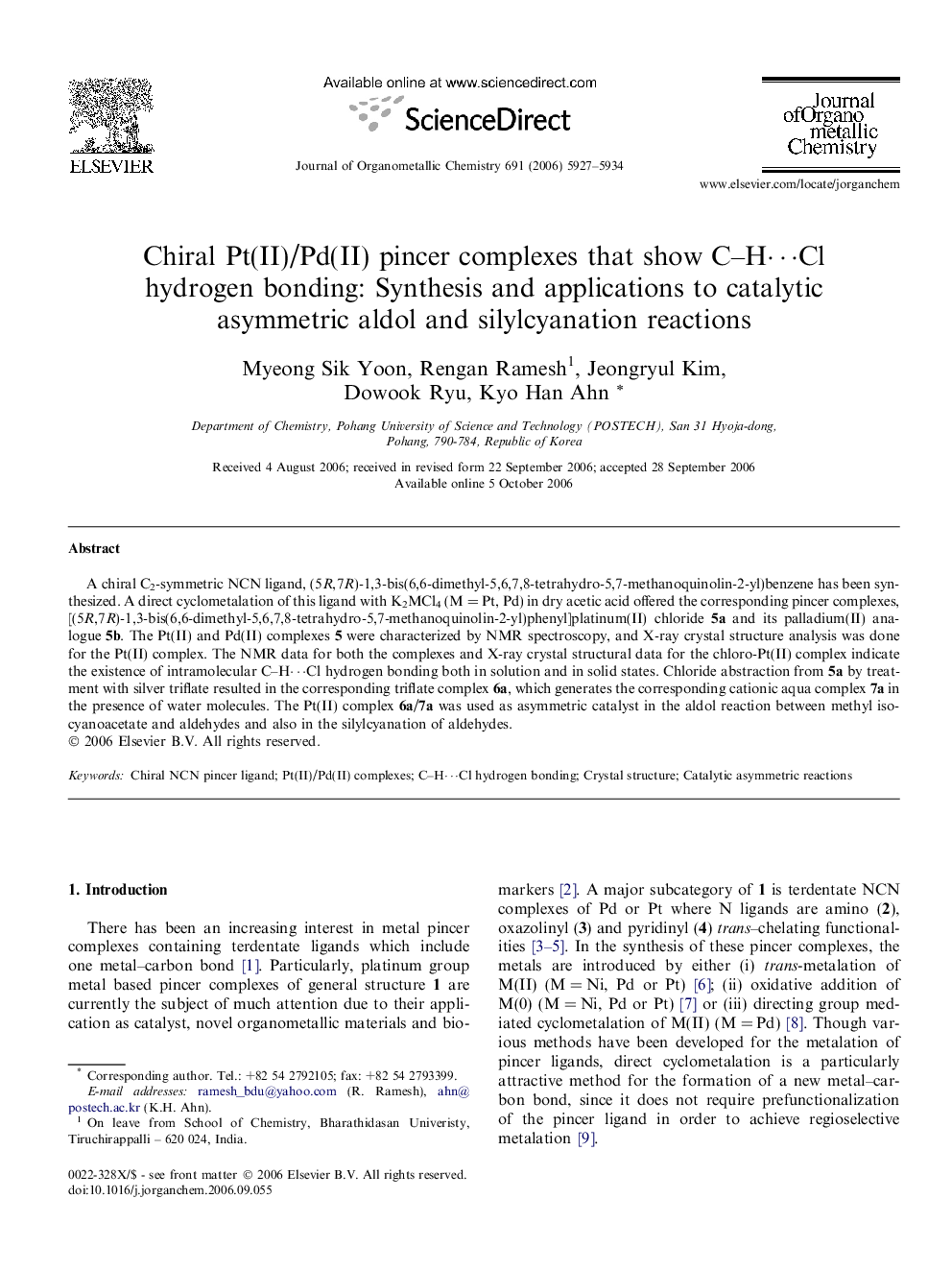| کد مقاله | کد نشریه | سال انتشار | مقاله انگلیسی | نسخه تمام متن |
|---|---|---|---|---|
| 1328421 | 977569 | 2006 | 8 صفحه PDF | دانلود رایگان |

A chiral C2-symmetric NCN ligand, (5R,7R)-1,3-bis(6,6-dimethyl-5,6,7,8-tetrahydro-5,7-methanoquinolin-2-yl)benzene has been synthesized. A direct cyclometalation of this ligand with K2MCl4 (M = Pt, Pd) in dry acetic acid offered the corresponding pincer complexes, [(5R,7R)-1,3-bis(6,6-dimethyl-5,6,7,8-tetrahydro-5,7-methanoquinolin-2-yl)phenyl]platinum(II) chloride 5a and its palladium(II) analogue 5b. The Pt(II) and Pd(II) complexes 5 were characterized by NMR spectroscopy, and X-ray crystal structure analysis was done for the Pt(II) complex. The NMR data for both the complexes and X-ray crystal structural data for the chloro-Pt(II) complex indicate the existence of intramolecular C–H⋯Cl hydrogen bonding both in solution and in solid states. Chloride abstraction from 5a by treatment with silver triflate resulted in the corresponding triflate complex 6a, which generates the corresponding cationic aqua complex 7a in the presence of water molecules. The Pt(II) complex 6a/7a was used as asymmetric catalyst in the aldol reaction between methyl isocyanoacetate and aldehydes and also in the silylcyanation of aldehydes.
Chiral pyridine-based Pt(II)/Pd(II) pincer complexes are synthesized, which show C–H⋯Cl hydrogen bonding both in solution and solid states. Catalytic efficiency was evaluated with the triflate pincer complex in asymmetric aldol and silylcyanation reactions.Figure optionsDownload as PowerPoint slide
Journal: Journal of Organometallic Chemistry - Volume 691, Issue 26, 15 December 2006, Pages 5927–5934